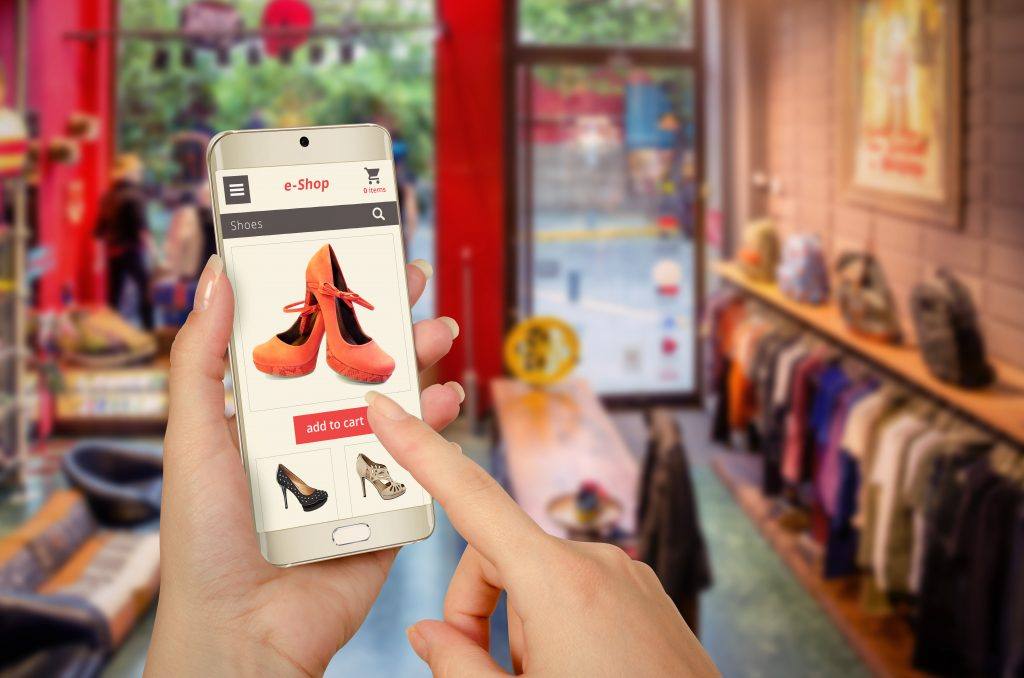Technology is Changing the Shopping Experience
If the words “adapt or die” don’t mean anything to you or your business, it might be time to reassess your retail model.
In recent years, the way in which consumers react to advertising, research products, and shop for new goods and services has changed dramatically.
As this technology revolution continues full-throttle, it’s important to understand just how consumer behavior is changing. If you’re not adapting to these behaviors, you run the risk of becoming irrelevant – which is a nice way to say “your business is going to die.”

Salespeople aren’t so important anymore
For the last several decades, salespeople have been product gurus. Their expertise really mattered to customers who were deciding between something like one model of vehicle or another.
Today, that’s becoming less and less of the case.
Sure, salespeople can be great for negotiating deals or explaining some product benefits, but when a new customer comes into your business, chances are he or she is more informed than any salesperson on your floor.
Statistics show that most consumers do a good deal of research prior to purchasing a product, and while they do rely on opinions, it’s usually not the opinion of a salesperson.
Here’s something you might not have known:
About 70 percent of consumers read through online reviews before committing to buy a product.
Businesses who want to thrive in this new, consumer-empowered economy need to depend less on their salespeople and more on ensuring that prospects find the right information and messaging around your products and services.
Mobile devices are everything
Chances are, you’re reading this post on a smartphone or mobile device. Today, that’s just the way we work.
With the bulk of consumers using mobile devices for everything from email to consumer research, your business should be working to tailor your sales and marketing approach to a mobile-driven audience.
Consider ways you can reach your customer’s phone or tablet. Text message promotions, social media campaigns and contests, and special mobile offers are all extremely important if you’re looking to stay relevant and top of mind to your customers and prospects.
And, of course, before you can enter the mobile revolution, your first task is ensuring your web presence is mobile friendly.
Without a rich, intuitive mobile presence, you’re undoubtedly losing a big chunk of your audience. Additionally, keep in mind that your customers are finding you from a variety of other platforms – it might be their Yelp app, or Google Maps, or some other consumer-driven application. It’s critical to make sure your business information is current and available on all of these services.
Your customers are harder to please
If making customers happy is your primary concern, we applaud you.
But that endeavor may be more difficult now than in years past.
That’s not necessarily because shoppers have become more particular, but because they have more power to complain and retaliate when and if they are disappointed in a product or service.
The digital revolution has also brought with it a universal impatience. Your customers want everything right now. When you’re slow to respond or deliver less-than-ideal customer service, it’s not just you that will hear about it.
Thanks to social media, the entire world will soon know about a disgruntled shopper’s experience. As potential customers start researching product and service providers, they’ll undoubtedly encounter these complaints or poor reviews, and that’s going to affect your bottom line.
Keeping your business on top of your social media program isn’t just about launching cool contests and campaigns. It’s also about responding quickly and helpfully to complaints or bad reviews.
An unhappy shopper isn’t necessarily a lost customer – unless you ignore him.

